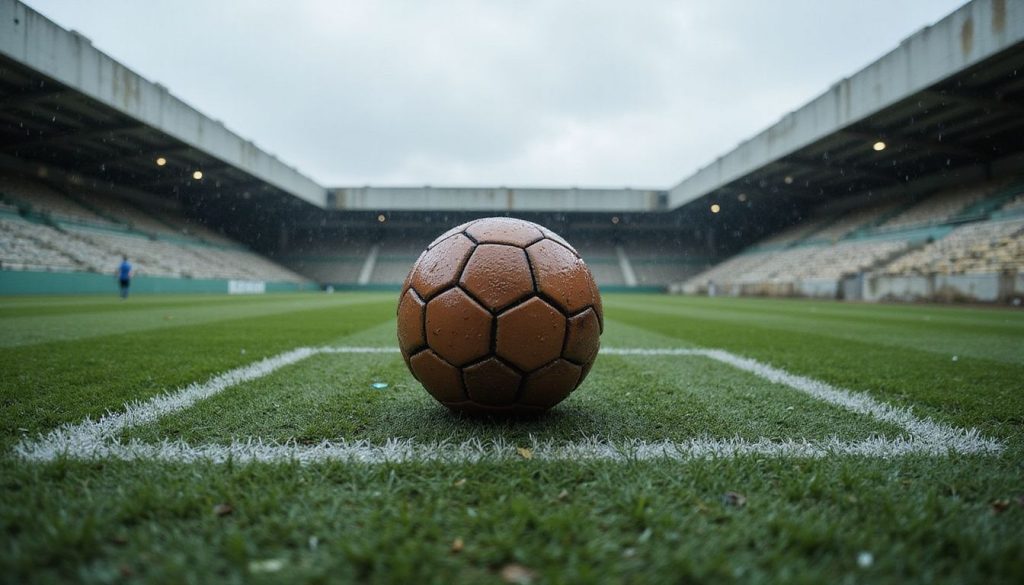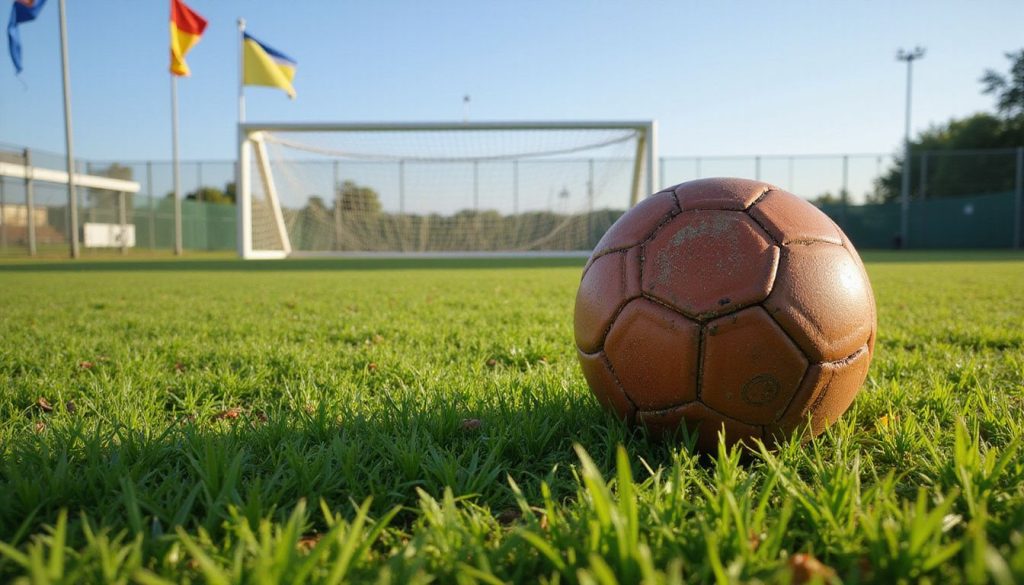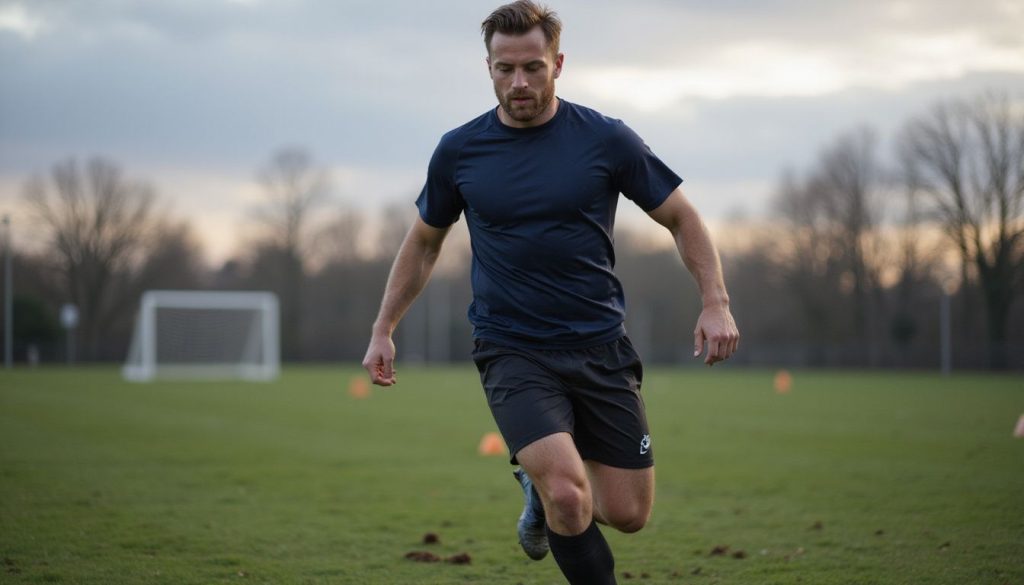Game Intelligence In Football
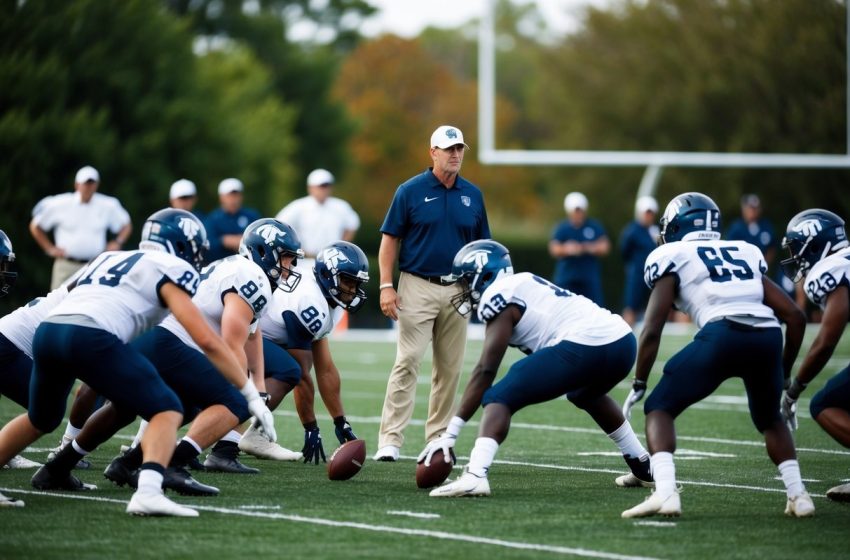
Game Intelligence in Football: How Smart Decisions Shape Success
If you’ve ever watched a football match and wondered how some players seem to make the right move at the perfect moment, you’ve noticed game intelligence in action. Game intelligence in football is the ability to read the game, recognize important patterns, and use quick thinking to make smart decisions on the field. This skill can make a big difference in a player’s performance, helping them be in the right place and act at just the right time.
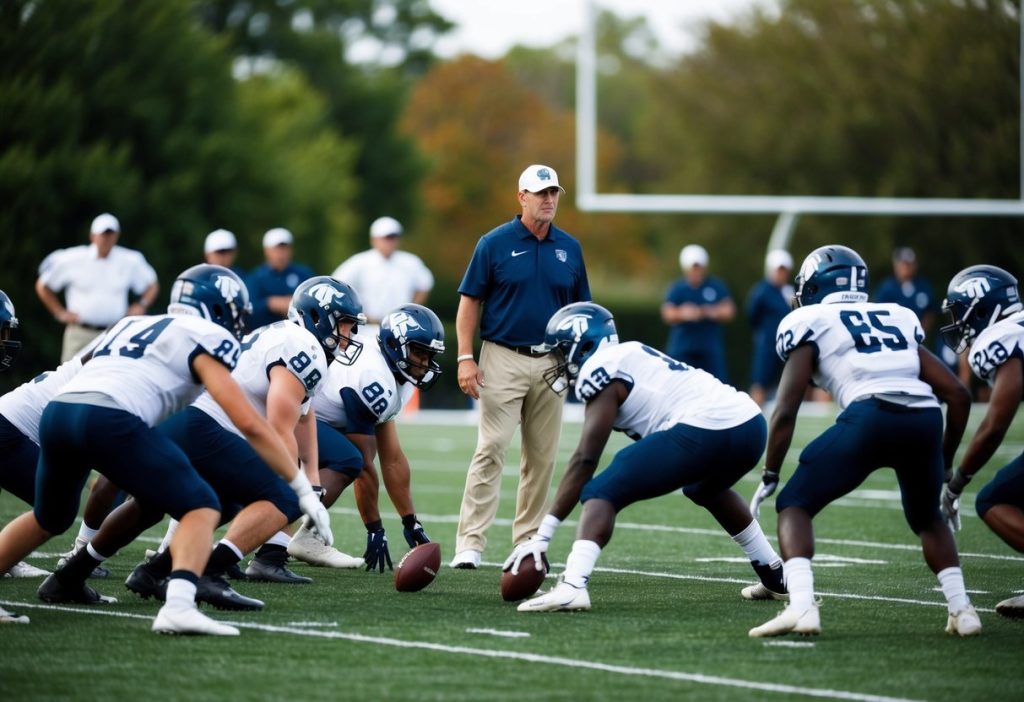
You don’t have to be the fastest or strongest to stand out—by sharpening your game intelligence, you can play smarter and see more success during matches. If you want to learn what makes a football player truly “see” the game differently and how you can develop these skills yourself, keep reading.
Understanding Game Intelligence in Football

Game intelligence lets you recognize patterns, make decisions quickly, and play effectively in changing situations. It has grown from simple skills to a key part of player development in both football and soccer.
Defining Game Intelligence
Game intelligence is your ability to read the game, understand what’s happening, and decide your next move before others do. This means knowing when to pass, shoot, or defend. It also involves noticing the positions of your teammates and opponents so you can react or adapt instantly.
You use game intelligence to scan the field, predict opponents’ moves, and spot opportunities. It is not just about physical skills but how well you process information quickly during a match.
Some important parts of game intelligence include:
- Anticipation: Guessing what will happen next based on what you see.
- Pattern Recognition: Spotting plays or movements that often repeat.
- Adapting: Changing your actions as the game develops.
Historical Evolution of Game Intelligence
Game intelligence has changed over the years. In the early days of football and soccer, players depended on physical strength and basic skills. Teams focused less on tactics and quick decisions.
Over time, coaches started to train players to “think on their feet.” This meant understanding formations, tactics, and how to read the game. With the growth of video analysis, players now study games to see patterns and improve their awareness.
Modern football and soccer focus on mental sharpness as much as technical skill. Today, youth academies emphasize decision-making and anticipation, not just passing or dribbling. Players who read the game well are valued highly.
Importance in Soccer and Football
Game intelligence can be the difference between winning and losing. It helps you pick the right pass, track fast attackers, and react to unexpected changes. The best players use their minds as much as their feet.
In coaching, strong game intelligence allows you to create strategies that fit the moment. For referees and officials, it helps manage the game smoothly and fairly. When you develop this skill, you make better choices under pressure.
Many top players in football and soccer are known for their vision and smart play. This shows how game intelligence is just as important as speed, skill, or stamina.
Core Elements of Game Intelligence

Game intelligence in football depends on several essential skills. These skills help you react, adapt, and play at your best in fast-moving situations.
Decision Making
Quick and smart decisions separate great players from the rest. When you are on the field, you need to judge which choice will work best within seconds. This might mean making a risky pass, holding onto the ball, or tracking back in defense.
Good decision making comes from constant practice and learning from mistakes. You need to know the rules, understand your team’s strategies, and spot dangerous moments before they happen.
Some players scan the field before they even get the ball. They notice where their teammates and opponents are. Then, they choose the safest or most effective option to keep the game moving.
Creativity in Play
Creativity in football means doing more than what’s expected. You solve problems in new ways, either by finding space or surprising your opponents with an unusual move.
You might use a back-heel flick, a chipped pass, or switch play quickly to throw defenders off balance. Creative choices can break down tough defenses and give your team more chances to score.
Your creativity does not just happen. You develop it by watching others, trying new things in practice, and learning from what works. Some of the greatest footballers are known for their creative thinking, not just their physical skills.
Creative players turn hard moments into scoring chances for themselves and their teammates.
Body Position Awareness
Knowing where your body is on the field and adjusting your stance is key. This helps you receive passes under pressure and move away from defenders. Staying aware of your body position keeps you balanced and ready to react to anything.
When you angle your body to face the play, you see more of what’s happening. This lets you decide faster and respond better to changing situations. For example, opening up your hips while waiting for a pass lets you move in any direction quickly.
Players who are aware of their body position avoid tackles, control the ball smoothly, and keep possession even in tight spaces.
Reading the Game
Reading the game means predicting what will happen next. You pay attention to the movement of other players, the ball, and patterns in play. This lets you intercept passes, create chances, or get into dangerous positions.
To read the game well, you need to scan the field often and process information quickly. You pick up on small hints, like a forward leaning towards a run or a midfielder looking for a switch of play.
Here is what good game readers often do:
- Anticipate where the ball will go,
- Spot weaknesses in the other team,
- Move early to take advantage of space.
Developing this skill takes time, attention, and a lot of watching both games and teammates.
Offensive and Defensive Applications

Game intelligence helps players make better choices both when attacking and defending. Sharp decision-making and clear understanding of the field give teams a real edge in modern football.
Game Intelligence in Offense
When you play offense, game intelligence lets you spot the best routes, moves, and passing options. You can read defenders, predict their choices, and create space for your team.
Great attackers often use quick thinking to link with teammates, leading to more scoring chances. For example, forwards look for gaps in the defense, while midfielders choose when to pass, shoot, or dribble. Recognizing and reacting to defenders’ weaknesses lets your team break through lines more often.
Game intelligence on offense also means knowing when to slow down, keep possession, or speed up an attack. This keeps the defense off balance and helps maintain control of the game.
Game Intelligence in Defense
When defending, game intelligence helps you predict and limit what the opposing offense can do. Smart defenders track runs, mark dangerous players, and block passing lanes to shut down attacks.
Strong defensive teams stay organized, shift as a unit, and communicate constantly. Anticipating where an attack will come from lets defenders make tackles and interceptions with good timing.
In fast transitions, defenders need to quickly judge when to step forward, hold their ground, or support a teammate. This clear understanding keeps your back line tight and reduces risky situations.
Training and Development Strategies

Improving game intelligence in football takes regular practice, guided learning, and specific training methods. The way coaches teach, the design of drills, and the support for young players all affect your tactical skills and decision-making on the field.
Role of Coaching
Coaching shapes how you see and understand the game. Good coaches do more than teach skills; they help you read the game, spot patterns, and react to different situations.
A coach can use video analysis to show you how professional players move and make decisions. Clear feedback during training lets you know what you did right and where you can adjust.
Coaches should also ask you questions, such as “What did you see?” or “Why did you choose that pass?” These questions make you think about your choices and speed up your learning.
By mixing talk, demonstration, and feedback, coaches encourage you to find smart solutions on the pitch.
Influence of Small Sided Games
Small sided games—such as 3 versus 3 or 5 versus 5—are powerful tools to improve game intelligence. These games give you more touches, quicker play, and lots of chances to make decisions fast.
With fewer players, you need to create space, support teammates, and predict opponents’ moves. You get instant feedback from each action, which helps you adjust right away.
Here are just a few benefits of small sided games:
- More involvement: You are always moving and making choices.
- Quicker decisions: Less time forces you to think and react faster.
- Better communication: You learn to talk clearly with teammates.
These games mimic real match pressures and help build your football IQ in a fun way.
Fostering Potential
Everyone has the potential to grow smarter on the field. It’s not just about talent; it’s about your attitude, effort, and support system.
Coaches and clubs can support you by offering regular, challenging drills that match your current skill level. Positive feedback and patience help you become more confident and eager to learn.
Working with others and reflecting on your play helps you build habits for future games. You can also improve by watching matches, asking questions, and being open to advice.
Your game intelligence grows as you stay curious and never stop learning.
Influential Figures and Teams in Game Intelligence
Many important people and clubs have helped shape game intelligence in football. Their ideas, methods, and training styles affect how players learn, play, and make decisions on the field.
Johann Cruyff’s Philosophy
Johann Cruyff changed football by encouraging players to think more and make smart choices. He taught that you must read the game, move into the right spaces, and support your teammates.
Cruyff valued freedom and creativity. Instead of rigid tactics, he wanted you to understand why you make each move. His style promoted quick passing, constant movement, and seeing chances before others.
He influenced both his teams and future coaches. Many of his players became coaches themselves and used his ideas. Cruyff’s impact is still visible any time you see a team that values control, vision, and intelligence on the pitch.
Barcelona and Ajax Approaches
Both Barcelona and Ajax base their training on teaching players to think quickly. These clubs push you to play with awareness, teamwork, and skill. They focus on the value of possession.
At Ajax, players must learn all positions, so they understand every part of the game. Barcelona’s famous La Masia academy teaches young players to read the game, make fast decisions, and adapt during every play.
Some key points from these clubs include:
- Small-sided games for more touches and decisions
- Group training for better communication
- Video analysis to review smart plays and mistakes
These methods keep producing players who are known for their game intelligence, like Xavi, Iniesta, and Frenkie de Jong.
Horst Wein’s Legacy
Horst Wein was a coach and teacher who created new ways to develop game intelligence in youth. He believed that you learn more by solving problems on the field than by memorizing set plays.
Wein used games and challenges instead of drills. He asked you to make choices, adapt, and reflect on past games. His book “Developing Game Intelligence in Soccer” is used by coaches all over the world.
Wein also spoke about the “Game within the Game,” which means seeing little battles and situations in each match. By helping you spot patterns and think ahead, he encouraged players to be thinkers, not just athletes.
Game Intelligence Beyond European Football
Game intelligence isn’t just found in soccer or European football. Other sports, like American football, show how important quick thinking and strategy are for top athletes.
National Football League Perspectives
In the National Football League (NFL), game intelligence goes far beyond physical skill. Players must read defenses, react to changes, and make decisions in a split second. For example, quarterbacks must recognize blitzes and shift plays at the line of scrimmage.
Coaches and players often use film sessions to study opponents’ habits. They look for patterns, which help them predict plays and adjust strategies during games. Communication on the field is also key. Players constantly signal each other to adapt to what they see happening.
In the NFL, mental sharpness often decides close games. Some of the most successful players, like Tom Brady and Peyton Manning, are known for their football IQ. They combine preparation, awareness, and fast decision-making to outsmart opponents.
Frequently Asked Questions
Players with strong game intelligence make smarter choices and react faster to situations on the field. Understanding how to build and measure this intelligence helps you grow as a player.
How can a player improve their tactical intelligence in football?
You can improve your tactical intelligence by watching and analyzing games. Ask questions about why certain moves were made.
Practicing different game situations in training also helps. Try to predict what might happen next and learn from more experienced players or coaches.
What does game IQ refer to in the context of football?
Game IQ is your ability to read the game and make quick, good decisions. It involves knowing where to position yourself and when to pass, shoot, or defend.
This skill helps you spot opportunities and avoid mistakes on the field.
What are some methods for assessing a player’s intelligence on the football field?
You can assess football intelligence by watching how a player reacts under pressure. Coaches often look at decision-making, positioning, and reading the play.
Video analysis and asking players to explain their choices can also give clues about their understanding of the game.
Why is game intelligence considered crucial for football players?
Game intelligence helps you act faster and more effectively during a match. It allows you to choose the best options, both in attack and defense.
Players with high intelligence often help their teams win by making fewer mistakes and setting up game-changing plays.
Who are some football players known for their high game intelligence?
Some well-known players praised for their game intelligence include Xavi Hernandez and Luka Modric. They often seem to know what will happen next on the field.
Sergio Busquets and Thomas Müller are also recognized for their smart play and quick decision-making.
Can game intelligence be taught, and if so, what are effective training techniques?
Yes, you can learn game intelligence. Watching games and practicing match scenarios are helpful.
Coaches may use video reviews, small-sided games, and asking players to talk through their choices to improve this skill. Regular feedback and learning from mistakes also play a big part.

